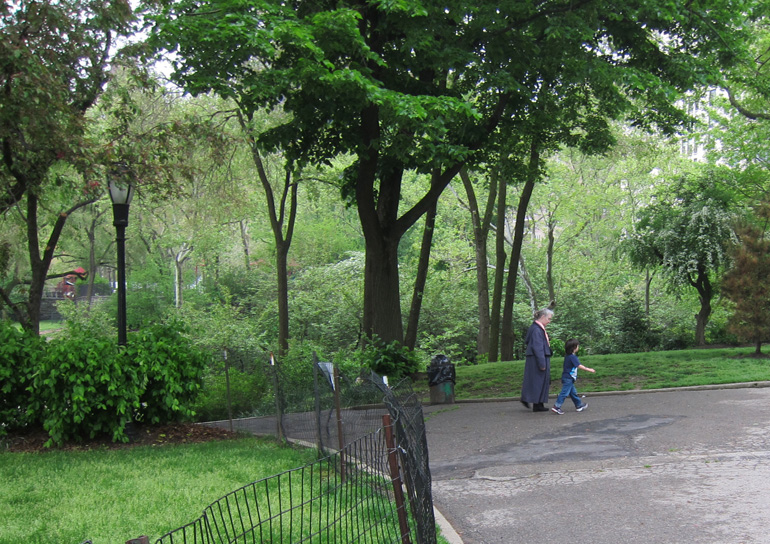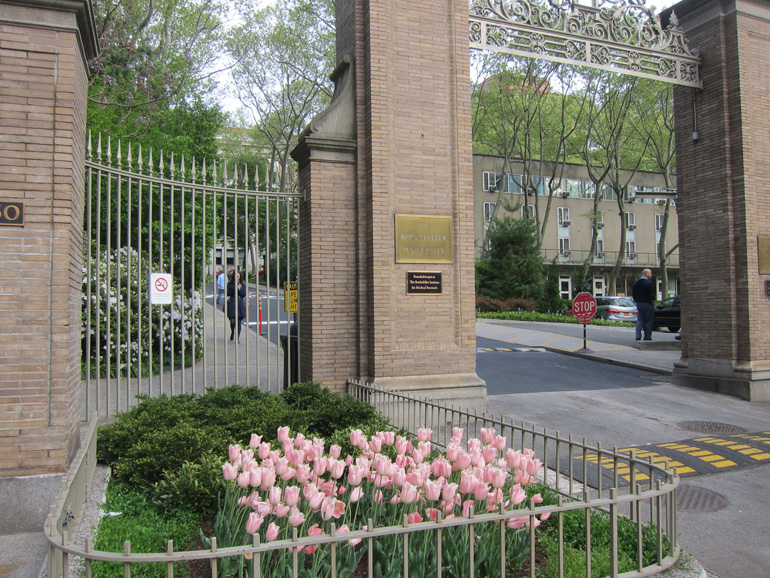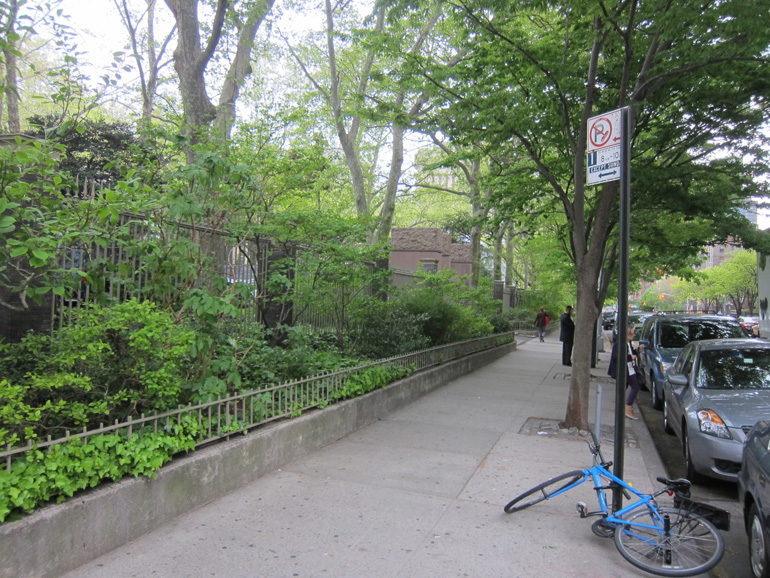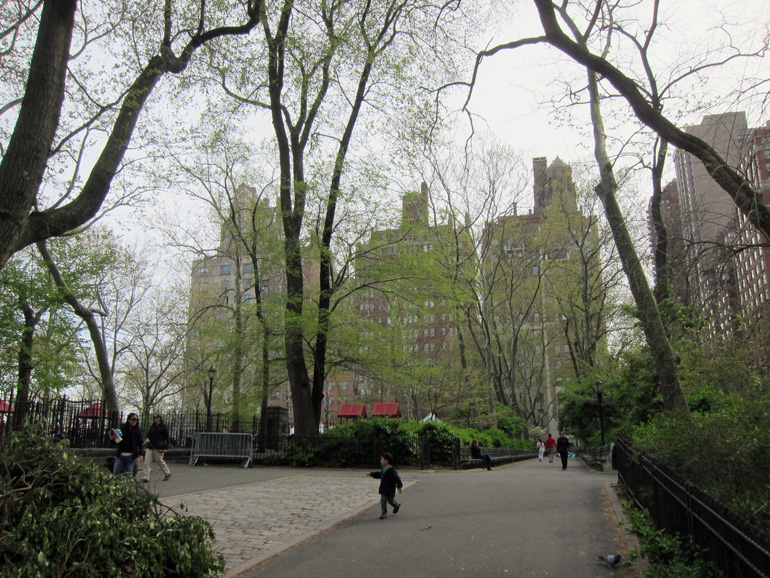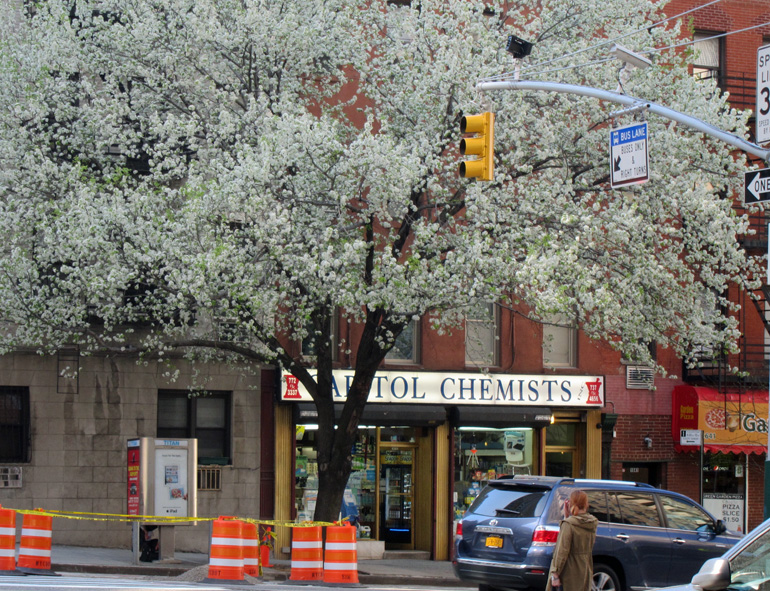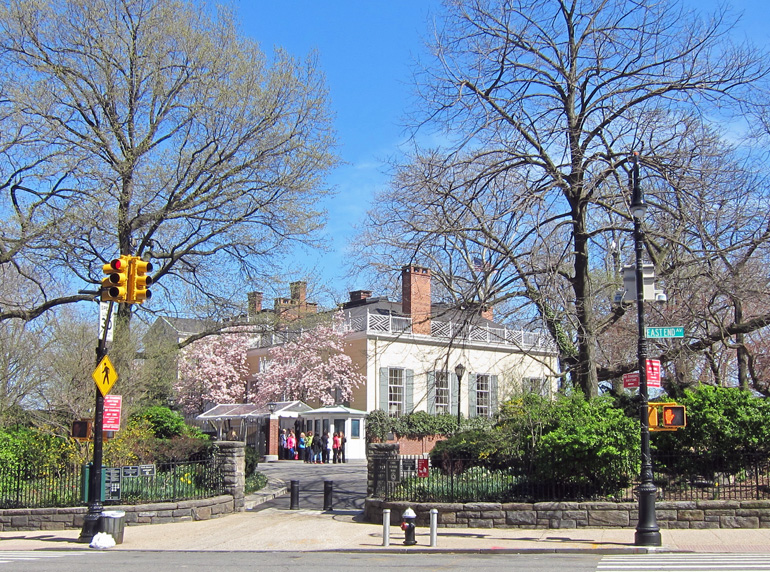Gotham Diary:
Principone
20 May 2013
It just now occurs to me to ask why, for all of my life, I have been interested in monarchical dynasties and aristocratic families — in those born to rule, in those not so born who did, nevertheless, come to rule when death cleared the way; in whom was related to whom. The allure of hereditary grandeur was a draw, but it never would have held me, because so few individuals ever do live up to it. What fascinates me, literally, is the conundrum of being born to lead a certain kind of life. This is a distinctly unAmerican prospect, but a very attractive one to me, for daydreams anyway, because I have never been able to dream up a life for myself. I have simply made the best of whatever came along. I do not admire “self-made men” — they’re usually not — and, as Grace Kelly complains in Rear Window, I do (secretly) believe that people ought to be born, live, and die on the same spot. (Easy for me to say; I was born in Manhattan.) I’m aware that I cherish these luxurious possibilities precisely because that’s all that they are, in today’s world; I should chafe as irritably as anyone if obliged to pursue an unchosen career or to live in a dismal climate. But today’s world, in which everyone is tossed out of the airplane one by one without regard for the reliability of the parachutes, is, in contrast, flatly inhumane.
Kathleen does not exactly disapprove of my reading books about the Duke and Duchess of Windsor, but she doesn’t want to hear about them. The duchess will always be that woman to my wife. Kathleen will never feel the need to specify just what it was that that woman did to earn her opprobrium, although the sin of marrying for comfort and security will always have something to do with it; and if it is pointed out that the Windsors’ comfort and convenience were arguable, then — so much the worse! Worse to marry for flashy comfort and illusory security. The duke may have been a nitwit, but the duchess was a wicked adventuress. Dixit uxor.
Although she enjoyed my reading aloud from Lady Caroline Blackwood’s The Last of the Duchess — a book in which the duchess never appears — Kathleen was not keen when I burst out, over the weekend, with snippets from Hugo Vickers’s account of the same story, the ghoulish entrapment of Wallis Windsor by her attorney, Suzanne Blum. And when I got to the second half of Behind Closed Doors, and found myself nodding sympathetically with Vickers’s assessment of the duchess as “something of a victim,” Kathleen snapped, “Exactly why?” I fumbled a reply that was perhaps foredoomed to be unpersuasive. By that time, however, my interest had shifted to the elephant in the room, which has never attained the focus that it deserves: the abdication itself.
At the time, in late 1936, the abdication was regarded by all right-thinking people as a horror, a monstrosity, and it seems more clear every time I read about it that nobody really believed that it would happen until the last minute — except the King himself. But it did happen, and the ex-king went away, and his replacement turned out to be not only acceptable but preferable. Thus began the era of having cake and eating it, too. With the accent on “Cake,” Deborah Devonshire’s nickname for the late Queen Mother. She and her husband and her daughters made up a dream royal family and were duly loved by the populace — but the abdication remained an abomination to which the only conceivable response was chercher la femme. That woman would never be received at court. Nor would the family take any interest in her plight after the duke’s death. Several friends of the duchess approached Buckingham Palace with their doubts about the care that the duchess was receiving behind the lawyer’s closed doors, but they were rebuffed. It was her own fault. Diana Mosley was indignant about the hypocrisy.
Well, if Cake hated her spell as Q I’ll eat my hat & coat, & then how about all the Christianity & what about widows, the dying & forgiveness of sins & loving one’s enemy etc.
What is clear to me is that nobody was thinking much about the abdication anymore, not as such. The abdication was a simply a large blank token crime that legitimated (in her own view) the Queen Mother’s hatred of the duchess. Asked about this, Elizabeth claimed that she didn’t hate Wallis, because to hate someone you have to know her. That’s something worse than hatred: cold contempt.
Nobody — getting back to the abdication — expected Edward VIII to forsake his throne for the woman who, it seemed clear to one and all, did not love him, and even the King didn’t know what it would mean if he did. Does this want of foresight remind you of anyone else, class? Did someone say “Lear”? I found myself wondering yesterday why nobody ever mentions Lear in connection with Edward, because I could see, especially in Vickers’s taut telling, how naive the King was about how he and his wife would be treated by his successor. The Duke of Windsor was shocked, shocked that his wife was not to be styled “Her Royal Highness.” You may think this a small matter, but you’d be wrong to do so, if for no other reason than the duke never let it go, and went on to his dying day bemoaning the insult. Seeing to it that the understandably expected title was withheld was Elizabeth Bowes-Lyon’s way of keeping the family feud alive. I am inclined to think that, had she died before the duke, her daughter would have put an end to it.
Pretty soon, Her Majesty will be ninety years old; she was ten when her uncle made her father King. Perspectives have shifted. It is clearer now that David Edward Christian &c not only didn’t want to be king but wasn’t thrilled to be Prince of Wales, either. There is evidence that he was looking for the right time to propose abdication in advance, but George V, who just might have countenanced such an outcome, was in poor health long before Wallis Simpson came on the scene, and the right time for such a discussion naturally never materialized. (The Prince might easily have taken himself out of the running by converting to Roman Catholicism, no matter how insincerely. It’s easy to see, however, that Mrs Simpson’s CV made this implausible.) Had the prince been a stronger, more decisive, more self-aware man, the abdication crisis might have been obviated altogether.
This, in any case, is where the the interest lies. Wallis, with her marriages and divorces and her uncanny hold over the uncrowned king, is a red herring. Did she dream of being queen (not much)? Might she have been queen (not without an exodus among the Dominions)? How about a morganatic marriage (a proposal made too late in the day)? These questions, having been chewed over with relish for the best part of a century, ought to be swallowed once and for all; they’re not, and never were, the issue.
***
In Archibald Colqhoun’s translation of The Leopard, the Prince’s “contadina,” Mariannina, in “a moment of particular pleasure,” exclaims “My Prince!” I wondered what Giuseppe Tomasi di Lampedusa had her say, in Il Gattopardo. “Mio principe!“? “Principe mio!“? Neither. “Principone!“, which means “big prince.” Which the Prince in every way is, not least in that way. Some things simply can’t be translated, which is why you have to have two copies of all the classics.
As long as I’ve got the book open, I might as well copy out the most famous line, which, figuring in Albert Hirschman’s The Rhetoric of Reaction, put me in mind to re-read the novel.
Se vogliamo che tutto rimango come è, bisogna che tutto cambi.
In order for everything to stay the same, everything must change.





